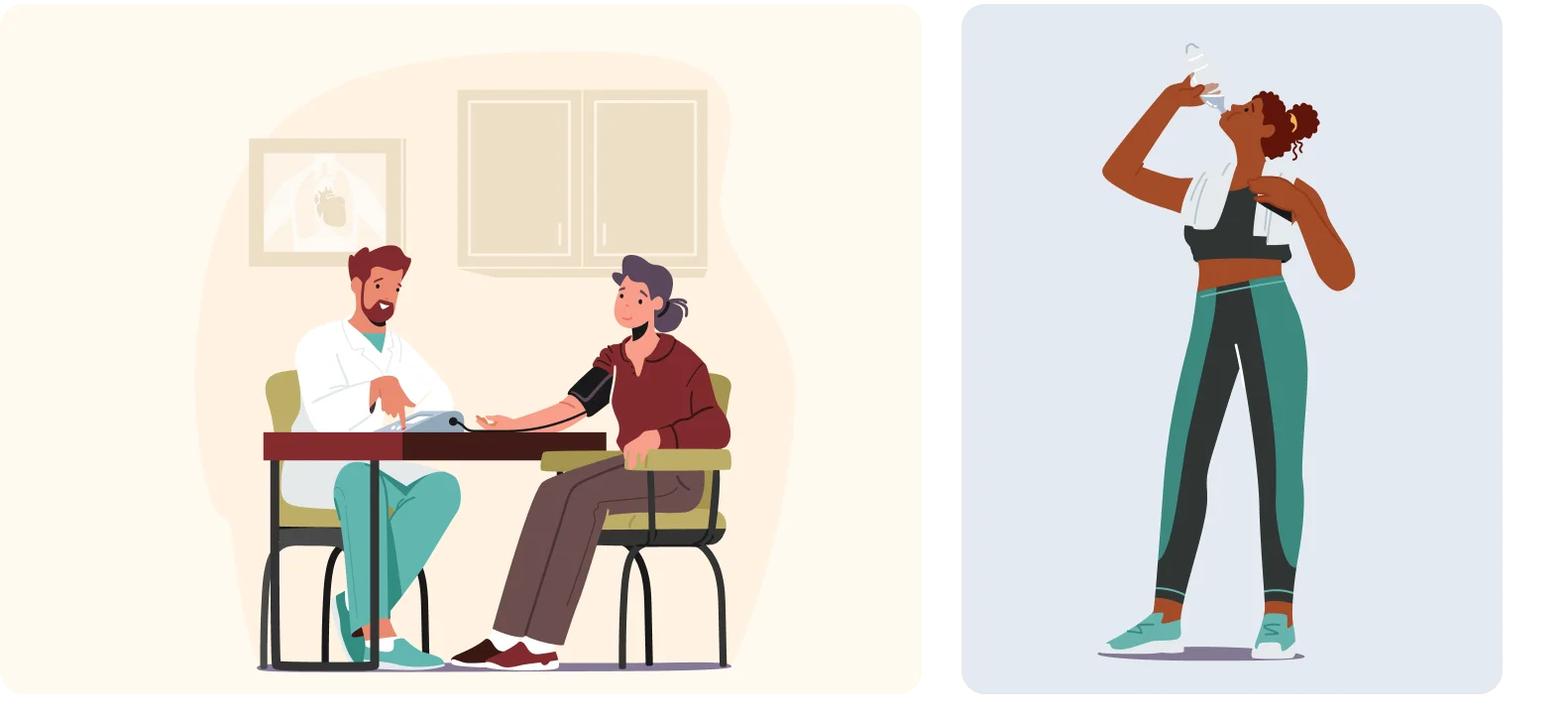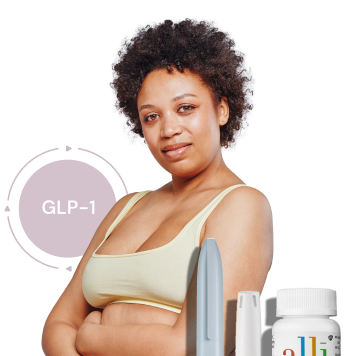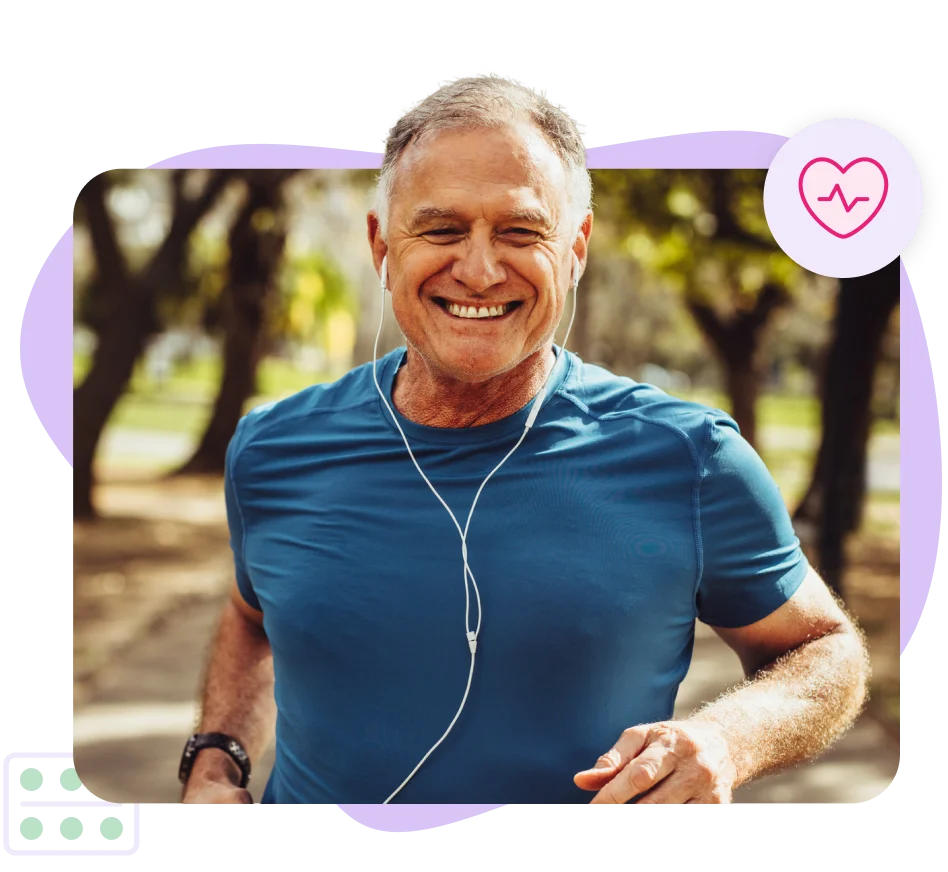Overview
High blood pressure, also known as hypertension, is when your heart has to work harder than normal to pump blood throughout the body causing an increased force exerted by the blood against the walls of the arteries. High blood pressure is typically measured in millimetres of mercury (mmHg) using two numbers: systolic pressure over diastolic pressure.

More about Systolic and Diastolic Pressure
- Systolic Pressure is the top number of a blood pressure reading — the 130 in 130/80 mmHg. It’s the arterial pressure when the heart contracts and pumps blood out.
- Diastolic Pressure is the bottom number of a blood pressure reading — the 80 in 130/80 mmHg. It’s the arterial pressure when the heart is at rest between beats.
What’s normal?
Everyone’s blood pressure is slightly different, and can vary depending on if your reading was taken at a GP surgery clinics or at home, but here is a general guide:
- 90/60 mmHg and 120/80 mmHg is normal or ideal
- Systolic between 120-129 mmHg and diastolic less than 80 mmHg means you have an elevated risk
- Systolic between 130-139 mmHg or diastolic between 80-89 mmHg is the start of hypertension or Stage 1
- Systolic at least 140 mmHg or diastolic at least 90 mmHg (150/90mmHg or more if you are over 80 years old) is advanced hypertension or Stage 2.
- Systolic over 180 mmHg and/or diastolic over 120 mmHg is a Hypertensive Crisis, you should seek immediate medical attention.
Causes
There are two types of high blood pressure: primary hypertension (also known as essential hypertension) and secondary hypertension. In most cases, primary hypertension has no identifiable cause. It develops over many years — usually along with plaque build-up in the arteries. Secondary hypertension is caused by an underlying condition and tends to appear suddenly.
Common risk factors of primary hypertension:
- Plaque buildup in the arteries (athersclerosis)
- Being overweight or obese
- Being over 65 (risk increases with age)
- Eating too much salt
- Low potassium levels
- Not eating enough fruit and vegetables
- Not getting enough exercise
- Drinking too much alcohol or caffeine-based drinks
- Smoking or vaping
- Stress
- Family history, having a relative with high blood pressure
- Being of black African or black Caribbean descent
Common causes of secondary hypertension:
- Adrenal gland tumours
- Congenital heart defects (blood vessel problems present at birth)
- Cough and cold medicines containing pseudoephedrine or phenylephrine, some pain relievers, birth control pills, and other over-the-counter or prescription drugs
- Illegal drugs, particularly stimulants like cocaine and amphetamines
- Kidney disease
- Obstructive sleep apnoea
- Hormone disorders or thyroid problems
- Stress—did you know that sometimes just getting nervous at the doctor’s office can cause your blood pressure to rise? It’s so common it has its own name and acronym: White Coat Hypertension (WCH)!
Symptoms
Many people with high blood pressure but don’t realise they have it — what is often considered a “silent” condition — because it typically does not cause noticeable symptoms, even if their blood pressure readings reach dangerously high levels. The only way to find out if your blood pressure is high is to have it checked.
A few people may experience:
- Headaches, particularly in the back of the head or base of the skull
- Shortness of breath, during physical activity or even when laying down
- Nosebleeds
- Vision changes, blurriness or seeing spots
- Chest pain (angina), especially during stress or physical exertion
- Fatigue, weakness or dizziness
In advanced stages, high blood pressure can lead to life-threatening heart attacks and strokes.
Treatment
Treatments for high blood pressure, typically focus on lifestyle modifications and medication (often a combination of medicines), to lower blood pressure and reduce the risk of complications such as heart disease, stroke, and kidney damage.
Lifestyle changes may include:
- Adopting a healthy diet low in sodium (less than 6g or 0.2oz a day), saturated fats, and cholesterol
- Increasing physical activity and getting more exercise
- Maintaining a healthy weight, losing weight if you’re overweight
- Cutting down on alcohol consumption
- Cutting down on caffeine found in coffee, tea, and cola
- Quitting smoking
Medications may include:
- Diuretics, aka water pills (often the first medicines used to treat high blood pressure, or as an alternative to calcium channel blockers)
- ACE inhibitors (typical if you are under 55 years of age or of any age and have type 2 diabetes)
- Angiotensin 2 receptor blockers (ARBs). Often prescribed as an alternative to ACE inhibitors.
- Calcium channel blockers (typical if you are over 55 years of age or of any age and are of African Caribbean origine and you no not have type 2 diabetes). Avoid drinking grapefruit juice while taking these.
- Other antihypertensive drugs to help lower blood pressure
- Beta blockers (now tend only to be used when other treatments haven’t worked)
Blood pressure monitors
Your GP may ask you to track your blood pressure at home to check if your medicine is working and to keep an eye on the status of your condition. Use a monitor with a cuff that goes around your upper arm. They are more reliable than devices that measure your blood pressure at your wrist or finger.
FAQs
Can stress and anxiety affect blood pressure?
Yes, stress and anxiety can temporarily raise blood pressure due to hormone release. While occasional stress may not impact your long-term blood pressure, chronic stress can. Managing stress through relaxation techniques and exercise helps mitigate its effects.
Who is at higher risk of high blood pressure?
Your age, family history, obesity, unhealthy diet, alcohol, smoking, chronic stress, and certain medical conditions increase the risk of high blood pressure. Also, individuals of African descent and those with a history of preeclampsia are also at higher risk.
Can high blood pressure be cured?
High blood pressure is typically a lifelong condition requiring ongoing monitoring and management. But with lifestyle changes and medication, blood pressure can be controlled, reducing your chance of complications.
For more information about high blood pressure (hypertension), please visit the NHS condition page.


























